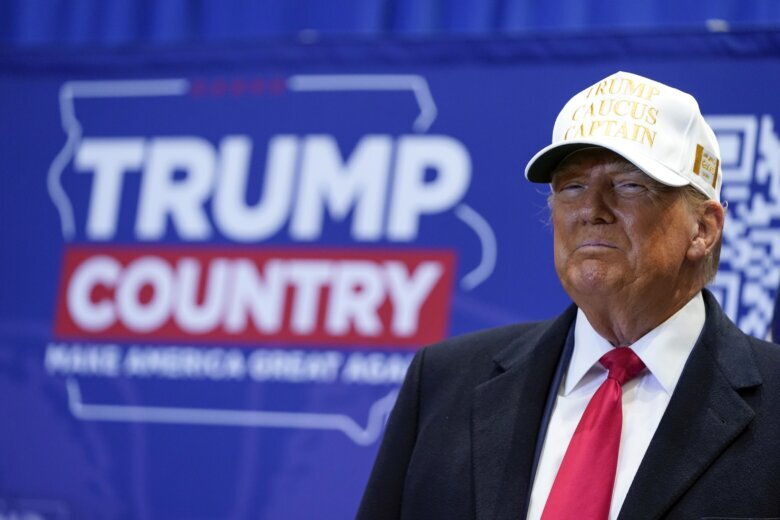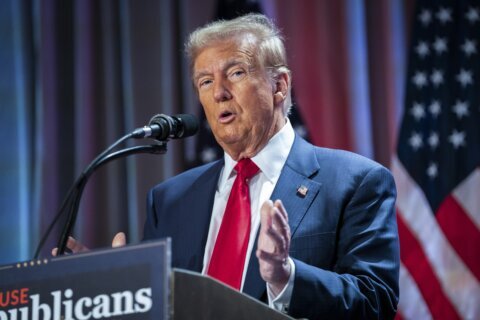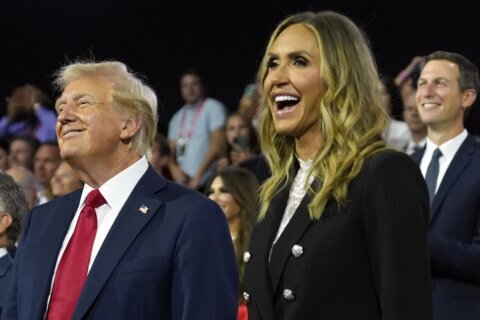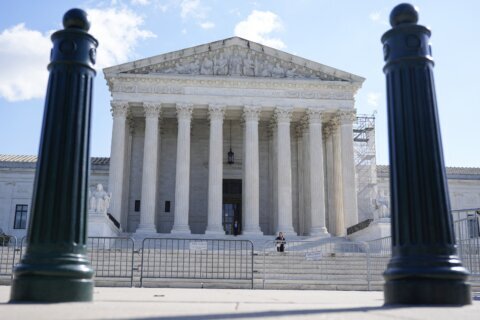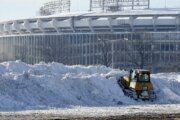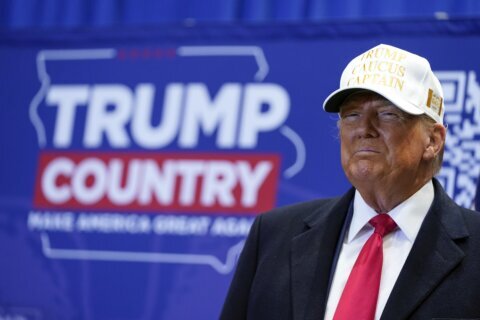

Kurt Kreuger attended a presidential campaign event for former South Carolina Gov. Nikki Haley in Cedar Rapids, Iowa, on Thursday — not that he felt it would make much of a difference.
Kreuger, a 33-year-old from the city, is still deciding who to vote for in Monday’s caucuses, which kick off the race for the 2024 Republican presidential nomination after months of candidates on the trail. Kreuger said he’s leaning toward backing entrepreneur and commentator Vivek Ramaswamy but is seriously weighing all of his options after voting for former President Donald Trump in 2020.
But while his personal ballot is still up for grabs, he said, the race overall isn’t.
“Trump’s going to win the caucus,” Kreuger predicted to ABC News. “There’s no chance anybody else wins.”
That sentiment was echoed in recent interviews with a dozen voters and Republican operatives in the early voting states of Iowa, New Hampshire and South Carolina which, along with the Nevada caucuses, encompass the first phase of the primary election.
According to voter and expert interviews — and nearly all polling — Republicans prefer one candidate to the others: Trump, who has campaigned on pledging to dismantle the Biden administration’s record. The former president often focuses on a message of “retribution” and touts anti-immigrant and anti-government policies.
Despite the initially crowded field of candidates running against him and despite the intensive media coverage and despite the frequent campaign stops and impassioned pitches from candidates like Haley and Florida Gov. Ron Desantis — despite all of that and despite Republican voters voicing concerns about having Trump be their White House nominee again, pre-vote polls show he remains the favorite choice.
With hours to go until ballots start being cast, Trump maintains double-digit leads not just in Iowa and New Hampshire and South Carolina but across the rest of the country, as well as nationally, according to 538’s averages.
All of that has added up to a technically competitive contest that feels like anything but, some voters and operatives said.
“It is boring,” New Hampshire GOP strategist Dave Carney said. “It’s technically open, but it’s really running against a two-time presidential nominee.”
For more signs of how secondary the run-up to the Iowa caucuses has recently felt, look no further that the streets of the state’s capitol city just days before the main event that has for years been positioned as key on the road to the White House (despite history showing otherwise).
On one midday afternoon last week, blustering winds whipped blankets of snow from the once-in-a-decade storm around Des Moines, where the streets were deserted, save for a handful of vehicles dotting the roads.
Due to the treacherous weather, nearly all campaigns altered or flat-out canceled events — further overshadowing their final pitches to voters. Trump, the front-runner, who has decided to campaign much less than some competitors, canceled three of his four scheduled in-person appearances this weekend, opting instead for telerallies and off-the-record stops.
Few campaign signs dotted the sidewalks heading into Monday. The lively caucus pre-parties and raucous organizing events that would light up the city in past cycles have not returned; even the large-scale watering holes and popular hotel bars for the throngs of out-of-state media were seen teeming with dozens, rather than hundreds.
That atmosphere marks a stark departure — both from the 2016 Republican nominating contest, in which first-time candidate Trump ultimately emerged victorious, and the 2020 Democratic primary, when President Joe Biden won out only after months of closely watched campaigning in a bustling field.
“This time eight years ago, we had tons of candidate events and stops where you would have two and three things that day. They would be doing local county party events, they’d be doing meetings, they’d be doing coffees and meet-and-greets and bus tours. And so, I just don’t know if the tone is the same as it was eight years ago in that it’s almost like it’s already been decided,” said one well-connected South Carolina GOP operative who asked for anonymity to speak about the race.
That has even some of the most ardent supporters of Trump’s rivals managing their expectations in the early states.
When asked what the best-case scenario would be for Haley in Iowa, Sanford Owens, a volunteer from Oregon who traveled all the way to Cedar Rapids, told ABC News it would be Haley getting “within five to eight points” of Trump — a margin that polling suggests would be a massive upset.
“I would be popping the champagne. I’m popping it baby. And I’m getting the good stuff: the Veuve!” Owens said.
To be certain, Trump’s rivals are working to motivate Iowans to vote in the caucuses.
“The blizzard is not going to stop us, we will fight. The wind chill is not going to stop us, we will fight,” DeSantis said at an event in Davenport on Saturday night. “The media’s not going to stop us, we will fight. The polls won’t stop us, we will fight. We have in our power to fix this country.”
Still, others sounded less certain.
“I just am hopeful that a lot of people will participate on Monday, and we’ll see where that goes,” said Debbie Neumeyer of Robins, Iowa, who plans on caucusing for Haley.
Some Republicans warned of apathy.
Beyond Trump’s yawning lead, Iowans are expected to continue to face dangerously cold weather on Monday, sparking speculation that could dampen turnout.
Some operatives have questioned if Trump’s voters will feel emboldened enough to brave the elements or if they feel comfortable that the caucuses are in the bag.
However, others warned the cold and Trump’s advantage combined could make supporters of other candidates wonder if it’s even worth voting if the contest is already considered out of reach.
“My dad specifically told me he wanted to vote for Haley, but he isn’t sure that it’s going to be worth going to caucus on caucus night because he thinks that Trump is gonna run away with it anyway. So, what’s the point?” said one GOP strategist with experience working in Iowa, who asked not to be quoted by name because of professional relationships. “So, I literally told him, ‘It’s gonna come down to turnout from people like you. If you think that it’s not worth showing up, then he is going to run away with it.'”
ABC News’ Hannah Demissie and Will McDuffie contributed to this report.
Copyright © 2024, ABC Audio. All rights reserved.

